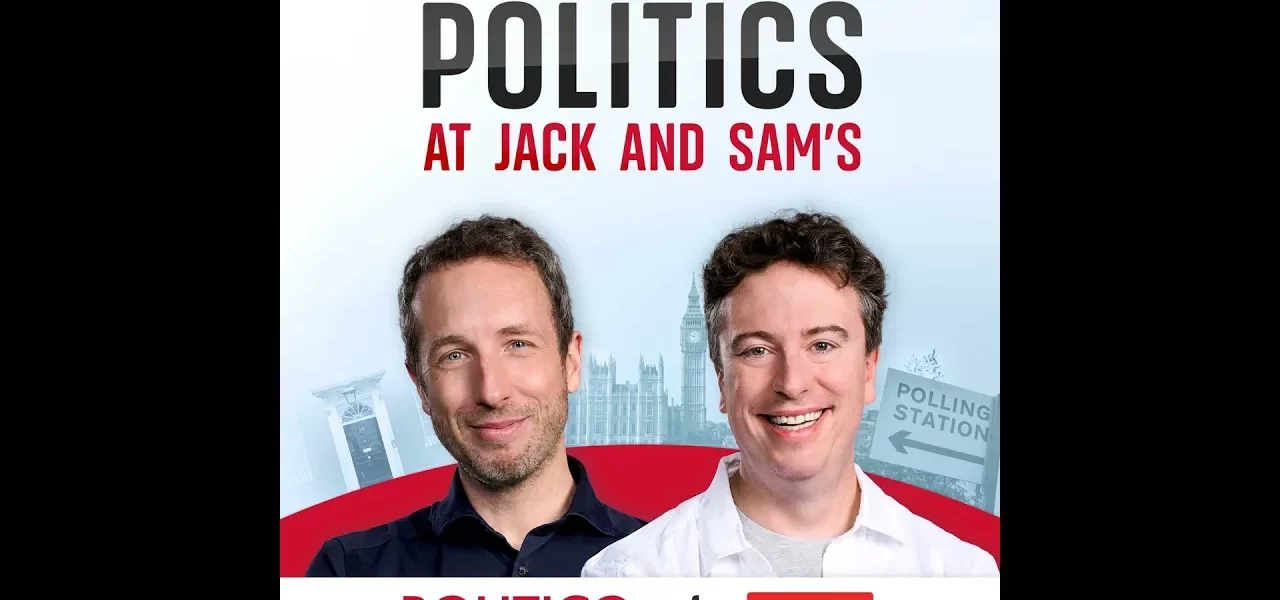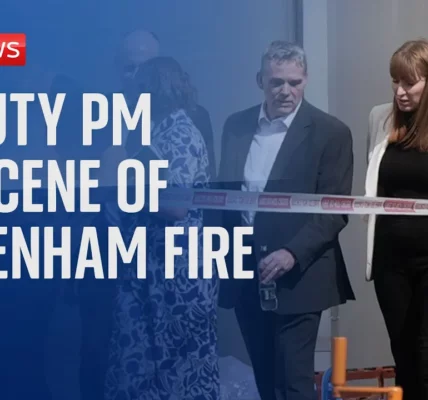Politics at Jack and Sam’s Daily: Election Campaign Insights

Welcome to the podcast that delivers everything you need to know about the election trail. In this article, we delve into the key moments from the recent debate between Rishi Sunak and Keir Starmer, the implications for their respective parties, and the ongoing political events shaping the UK landscape.
Introduction
As the UK approaches a pivotal election, the political atmosphere is charged with tension and anticipation. With just 29 days until polling day and two weeks into the campaign, the recent head-to-head debate between Rishi Sunak, the Prime Minister, and Keir Starmer, the leader of the Labour Party, has set the stage for what lies ahead. This article explores the fallout from the debate, the strategic moves of both leaders, and the broader implications for the election campaign as we commemorate the 80th anniversary of D-Day.
Debate Fallout: Key Takeaways
The debate, held in Salford, was characterized by a heated exchange, with both leaders vying for public attention and support. The immediate polling results reflected a tight race, with Rishi Sunak edging out Keir Starmer, but only marginally.
Public Frustration
Viewers expressed frustration over the debate’s format and content, feeling that the candidates spent more time attacking each other than presenting clear policies. This sentiment was echoed by both parties, indicating that the public’s perception of the debate may have lasting effects on their support.
Repetition of Key Lines
Rishi Sunak repeatedly accused Labour of planning to raise taxes by £2,000, a line that resonated with the audience despite Keir Starmer’s lack of immediate rebuttal. This moment highlights the importance of preparing for attacks and responding effectively to maintain voter confidence.
Strategies and Responses
Keir Starmer’s Approach
Starmer, known for his legal background and public speaking skills, faced criticism for not countering Sunak’s claims effectively. His hesitance to engage on the tax issue left many questioning Labour’s strategy moving forward.
Rishi Sunak’s Performance
Despite some awkward moments, including being laughed at during his announcement of a national service policy, Sunak’s ability to land key points may bolster his party’s efforts. His handling of the doctors’ strike question demonstrated his attempt to pivot away from criticism, though it raised further questions about his leadership.
Impact on Party Dynamics
The debate may have solidified divisions within Labour as they grapple with persistent accusations of vagueness in their policies. Sunak’s capacity to exploit these weaknesses could reshape the narrative in the lead-up to the election.
Polling Insights and Future Implications
Snap Polling Results
Following the debate, a snap poll indicated that Sunak was perceived as the winner by a slim margin of 51% to Starmer’s 49%. This result, while close, suggests a shift in public perception that could have significant ramifications for the election.
Long-Term Effects on Voter Sentiment
If these perceptions persist, they may influence undecided voters and sway public opinion in favor of the Conservatives. Key demographics, particularly those who voted Tory in the past, are crucial for Sunak’s campaign as he seeks to reunite a fractured voter base.
Commemorating D-Day and Its Political Context
This week marks the 80th anniversary of D-Day, a moment of reflection amidst the political fervor. Political leaders will attend ceremonies that emphasize unity and remembrance, momentarily pausing the campaign trail.
Political Repercussions of the Commemoration
The D-Day events could provide a backdrop for leaders to showcase their commitment to honoring veterans, potentially influencing public sentiment in their favor. However, the timing also means that the fallout from the debate will linger without immediate campaigning responses.
Focus on Wales: No Confidence Vote
In addition to the national debate, significant political drama is unfolding in Wales. First Minister Vaughan Gething faces a vote of no confidence, triggered by controversies surrounding leadership decisions and allegations of misconduct.
The Stakes for Vaughan Gething
With Labour holding a fragile balance in the Welsh Assembly, Gething’s position is precarious. The outcome of this vote could have implications for Labour’s overall strength in the UK, particularly as they navigate challenges in various regions.
Conclusion
The recent debate between Rishi Sunak and Keir Starmer has set the tone for the upcoming election, revealing both strengths and weaknesses in their campaigns. As the political landscape continues to shift, the importance of effective communication and strategic responses cannot be overstated. With key events like the D-Day commemorations and challenges in regional politics, the coming days will be crucial for both parties. Stay tuned for further updates and analyses as we approach polling day!
For more insights on UK politics, check out our articles on related topics.
“`




